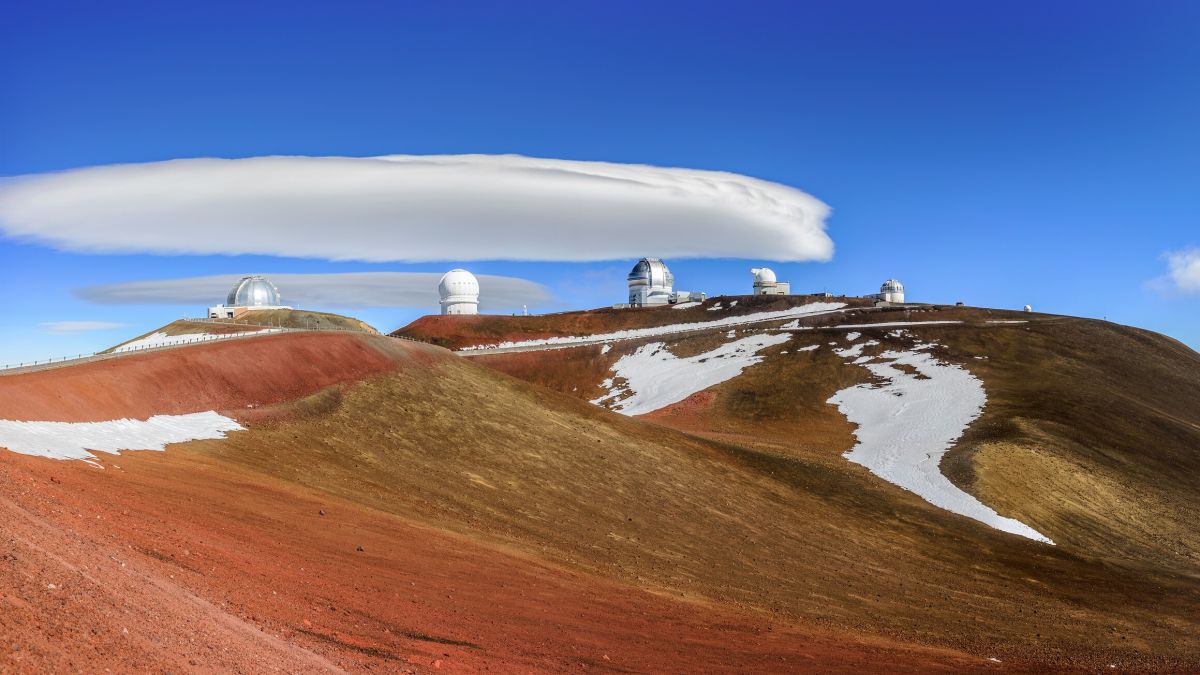Flying saucer-shaped cloud floats above Hawaiian telescopes (photo)

No, aliens did not just visit a few telescopes probing for celestial phenomena.
The Gemini Observatory on the Big Island of Hawai’i recently experienced a “close encounter” from a cloud that some folks associate with unidentified flying objects (UFOs), but the real explanation is far less alien. (It’s never about aliens, actually.)
“If at first glance you thought the white shapes on the left looked like a flying saucer, then you are not alone. The white oval structures are in fact beautiful examples of lenticular clouds,” officials with the U.S. National Science Foundation’s National Optical-Infrared Astronomy Research Laboratory, or NOIRLab, shared Thursday (Aug. 10) in a description of the image, which was taken at Gemini North in Maunakea, Hawai’i. (NOIRLab helps manage Gemini.)
Lenticular clouds, sometimes called “UFO clouds,” form when fast winds crash into the side of a mountain or other tall structure, according to the National Weather Service (opens in new tab).
Related: Ghostly ‘UFO cloud’ hovering over mountains wows judges in weather photo contest
The United Kingdom’s Meteorological Office says these formations are quite common in mountainous regions. “When air blows across a mountain range, in certain circumstances, it can set up a train of large standing waves in the air downstream, rather like ripples forming in a river when water flows over an obstruction,” the Met Office stated.
“If there is enough moisture in the air,” the office continued, “the rising motion of the wave will cause water vapor to condense, forming the unique appearance of lenticular clouds.”
Lenticular clouds form mostly in the mesosphere, which is the lowest and densest layer of Earth’s atmosphere. Roughly 75% of Earth’s air is found here, in a narrow zone just 5 to 9 miles (8 to 14.5 kilometers) in altitude.
Follow Elizabeth Howell on Twitter @howellspace (opens in new tab). Follow us on Twitter @Spacedotcom (opens in new tab) or Facebook.


